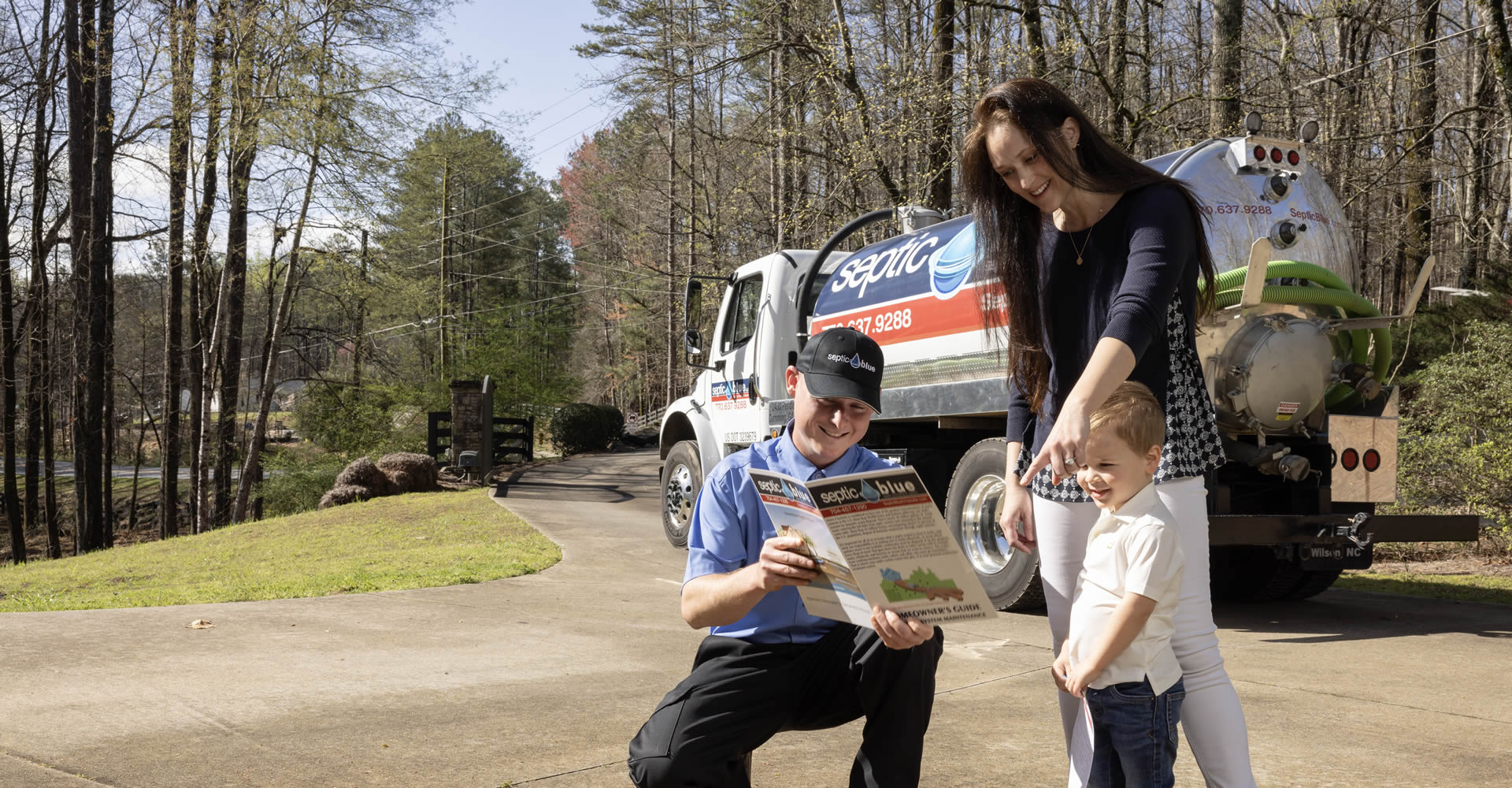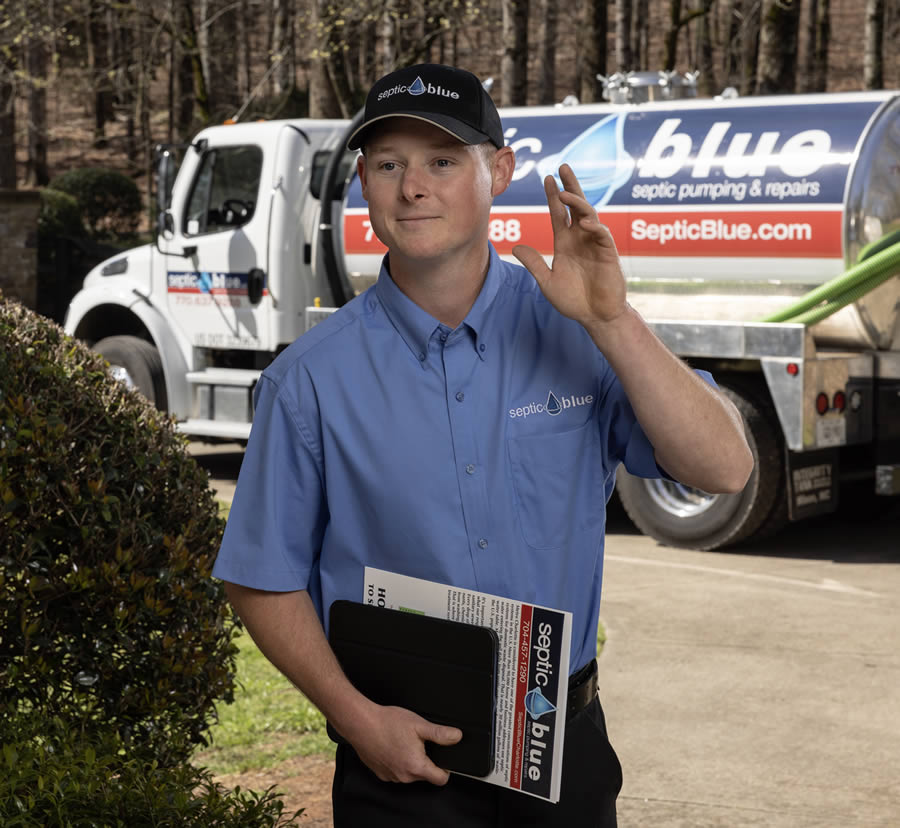The location of your septic tank is dependent on your local regulations and the type of soil in your area. However, there are still some general guidelines to follow when choosing where to put your septic tank: Make sure it's at least 100 feet from any wells or surface water sources like streams or lakes. Don't build it on top of a hill or other soft ground; this could cause problems with drainage. Avoid placing it near trees or shrubs because roots can break the soil around pipes.
Menu
- Home
- About
- Septic Services
- Blog
- Reviews
- Coupons
- Locations
- Service Areas
- Alpharetta, GA
- Ashland, GA
- Athens, GA
- Atlanta, GA
- Austell, GA
- Austell, GA
- Ball Ground, GA
- Bogart, GA
- Bremen, GA
- Canton, GA
- Carrollton, GA
- Chattahoochee Hills, GA
- Covington, GA
- Cumming, GA
- Dacula, GA
- Dallas, GA
- Douglasville, GA
- Duluth, GA
- Dunwoody, GA
- Eastville, GA
- Fayetteville, GA
- Griffin, GA
- Hampton, GA
- Hickory Flat, GA
- Holly Springs, GA
- Jasper, GA
- Kennesaw, GA
- Lawrenceville, GA
- Lilburn, GA
- Lithia Springs, GA
- Locust Grove, GA
- Loganville, GA
- Mableton, GA
- Macedonia, GA
- Madison, GA
- Marble Hill, GA
- Marietta, GA
- McDonough, GA
- Milton, GA
- Monroe, GA
- Newnan, GA
- Norcross, GA
- Palmetto, GA
- Peachtree City, GA
- Peachtree Corners, GA
- Powder Springs, GA
- Riverdale, GA
- Roswell, GA
- Rutledge, GA
- Sandy Plains, GA
- Sandy Springs, GA
- Snellville, GA
- Statham, GA
- Stockbridge, GA
- Sugar Hill, GA
- Suwanee, GA
- Tata, GA
- Temple, GA
- Villa Rica, GA
- Winder, GA
- Winston, GA
- Woodstock, GA
- How it Works
- FAQs
- Contact
WE NOT ONLY PUMP YOUR TANK - WE CLEAN IT!
Free Septic System Inspection ($99 Value)
Free enzyme treatment, Financing Available
- Home
- About
- Septic Services
- Blog
- Reviews
- Coupons
- Locations
- Service Areas
- Alpharetta, GA
- Ashland, GA
- Athens, GA
- Atlanta, GA
- Austell, GA
- Austell, GA
- Ball Ground, GA
- Bogart, GA
- Bremen, GA
- Canton, GA
- Carrollton, GA
- Chattahoochee Hills, GA
- Covington, GA
- Cumming, GA
- Dacula, GA
- Dallas, GA
- Douglasville, GA
- Duluth, GA
- Dunwoody, GA
- Eastville, GA
- Fayetteville, GA
- Griffin, GA
- Hampton, GA
- Hickory Flat, GA
- Holly Springs, GA
- Jasper, GA
- Kennesaw, GA
- Lawrenceville, GA
- Lilburn, GA
- Lithia Springs, GA
- Locust Grove, GA
- Loganville, GA
- Mableton, GA
- Macedonia, GA
- Madison, GA
- Marble Hill, GA
- Marietta, GA
- McDonough, GA
- Milton, GA
- Monroe, GA
- Newnan, GA
- Norcross, GA
- Palmetto, GA
- Peachtree City, GA
- Peachtree Corners, GA
- Powder Springs, GA
- Riverdale, GA
- Roswell, GA
- Rutledge, GA
- Sandy Plains, GA
- Sandy Springs, GA
- Snellville, GA
- Statham, GA
- Stockbridge, GA
- Sugar Hill, GA
- Suwanee, GA
- Tata, GA
- Temple, GA
- Villa Rica, GA
- Winder, GA
- Winston, GA
- Woodstock, GA
- How it Works
- FAQs
- Contact


